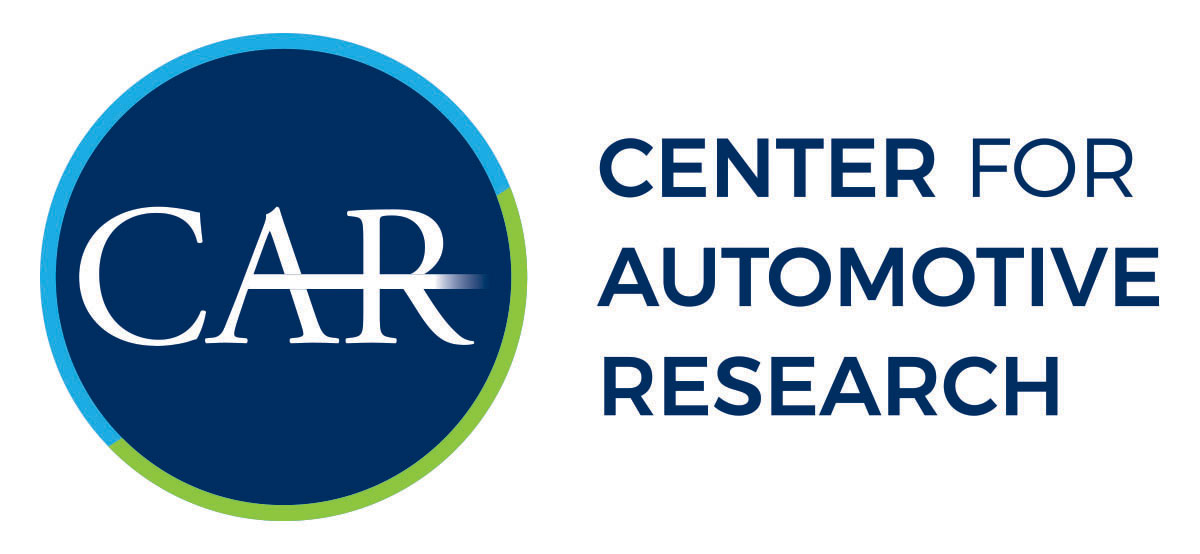Feature Stories
Automotive Industry Hot Topics with CAR President and CEO, Alan Amici (09/10/2024)
On a bi-weekly basis, the Center for Automotive Research (CAR) welcomes our audience to decompress with our President and CEO, Alan Amici, as he covers and shares his thoughts on the latest Hot Topics happening in the automotive industry. If you would like to receive...
Automotive Industry Hot Topics with CAR General Manager, SBU, Ravi Puvvala (08/23/2024)
On a bi-weekly basis, the Center for Automotive Research (CAR) welcomes our audience to decompress with our President and CEO, Alan Amici, as he covers and shares his thoughts on the latest Hot Topics happening in the automotive industry. This week we are joined by...
Automotive Industry Hot Topics with CAR President and CEO, Alan Amici (07/19/2024)
On a bi-weekly basis, the Center for Automotive Research (CAR) welcomes our audience to decompress with our President and CEO, Alan Amici, as he covers and shares his thoughts on the latest Hot Topics happening in the automotive industry. If you would like to receive...
What CAR is Checking Out: American Made Edition
In honor of Independence Day this week, we are bringing you a special edition of What CAR is Checking Out! This week we are focusing on current American events, news, and companies that are captivating our research team.Tyler Harp Industry AnalystWhat Tyler is...
Automotive Industry Hot Topics with CAR President and CEO, Alan Amici (06/28/2024)
On a bi-weekly basis, the Center for Automotive Research (CAR) welcomes our audience to decompress with our President and CEO, Alan Amici, as he covers and shares his thoughts on the latest Hot Topics happening in the automotive industry. If you would like to receive...
What CAR is Checking Out
Check out what CAR has been checking out! We asked some members of the Center for Automotive research team to share what they have been reading, watching, or listening to recently. Alan Amici President & CEOWhat Alan is Checking Out: General Motors Accelerates...
Automotive Industry Hot Topics with CAR Industry Analyst, Lisa Krusemark (06/07/2024)
This week we are joined by a special guest, Lisa Krusemark, Industry Analyst at CAR. Lisa covers and shares her thoughts on the latest Hot Topics happening in the automotive industry. If you would like to receive this bi-weekly insight into critical industry issues...
Automotive Industry Hot Topics with CAR Principal Economist, Yen Chen (05/24/2024)
This week we are joined by a special guest, Yen Chen, Principal Economist at CAR. Yen covers and shares his thoughts on the latest Hot Topics happening in the automotive industry. If you would like to receive this bi-weekly insight into critical industry issues you...
What CAR is Checking Out
Check out what CAR has been checking out! We asked some members of the Center for Automotive research team to share what they have been reading, watching, or listening to recently. Yen Chen Principal EconomistWhat Yen is Checking Out: What will high vehicle prices...
Automotive Industry Hot Topics with CAR President and CEO, Alan Amici (05/10/2024)
On a bi-weekly basis, the Center for Automotive Research (CAR) welcomes our audience to decompress with our President and CEO, Alan Amici, as he covers and shares his thoughts on the latest Hot Topics happening in the automotive industry. If you would like to receive...
STAY INFORMED
Join our email list to receive feature stories directly to your inbox.
